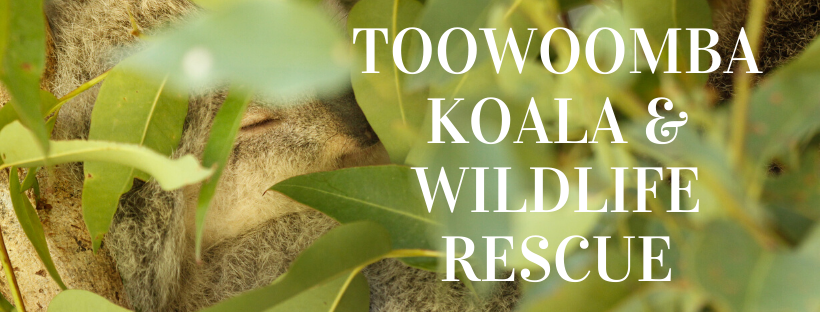|
On this website and facebook page for Toowoomba Koala and Wildlife Rescue, we choose to share the brighter side of volunteer wildlife rescue and rehabilitation. Sometimes when we don't have any updates to share, it is not because we aren't rescuing or helping wildlife, but rather because we choose to keep the sad rescue stories to ourselves. We feel that there is enough depressing news in the world without us adding to the stories. I do wonder though at times, if this is wise, as it may portray an unrealistic view of what wildlife rescue really entails and what we (wildlife carers everywhere) deal with on a regular basis. There are often stories of wildlife rescues and particular animals, that I feel should be shared, despite their outcome, but this is something I have mostly refrained from doing to avoid anyone else being greatly distressed by the situation as we were. Australian people and its wildlife has suffered so much in recent times, with the long drought, dreadful bushfires, extreme weather conditions and now with humans dealing with the covid19 pandemic. We feel that by sharing positive stories and updates on how our animals in care are going, that this can brighten peoples day and prevent everything they see on social media being depressing. The reality though, behind the scenes, is that we are still seeing the affects of a long drought with koalas in terribly poor condition requiring rescue on a regular basis. Koalas are still suffering from horrific domestic dog attacks and road trauma and others are suffering from distress and displacement from mass tree clearing in our region. We are already witnessing koalas losing their pouch babies due to these reasons and that is very distressing, especially for carers given the tough task of trying their best to save compromised tiny animals. Going into winter now, we are approaching mating season for Echidnas which are on the move and are crossing roads more than normal. We have echidna specialists in our region, so please get in contact for a referral should you find one that you are concerned about. While reptiles are heading into the brumation period, they are still venturing out into the sun on warmer days and being clipped by cars or attacked by dogs. Kangaroos and wallabies are coming to the road edges to eat to look for a little bit of green as the grasslands dry out, and they are then susceptible to car trauma. We have already had numerous tiny pouch joeys being found alive or injured after their mothers have passed away. Baby birds are still appearing after a particularly warm autumn season and they are being found blown out of nests onto the ground on windy days. Re-uniting them with their parents is the best option, but at times this isn't possible and they need to come into care. Koalas are now at the end of mating season, but pouched babies are starting to appear. Please report any sick, injured or orphaned koalas to us as soon as possible. Small orphaned koalas should not be left to "fend for themselves" should they be found without their mother. There are various experienced and licenced koala carers in our network who can help raising them for successful return back to the wild. Thankyou to everyone for your continued support and words of encouragement on the Facebook Page, it really means a lot to us. We are very grateful to have a wide network of wildlife carers, vets and rescue volunteers to network with and we continue to meet more people in this field all of the time, which is wonderful.
0 Comments
Leave a Reply. |
AuthorJudi Gray - Toowoomba Koala and Wildlife Rescue Archives
July 2023
Categories
All
|

 RSS Feed
RSS Feed
